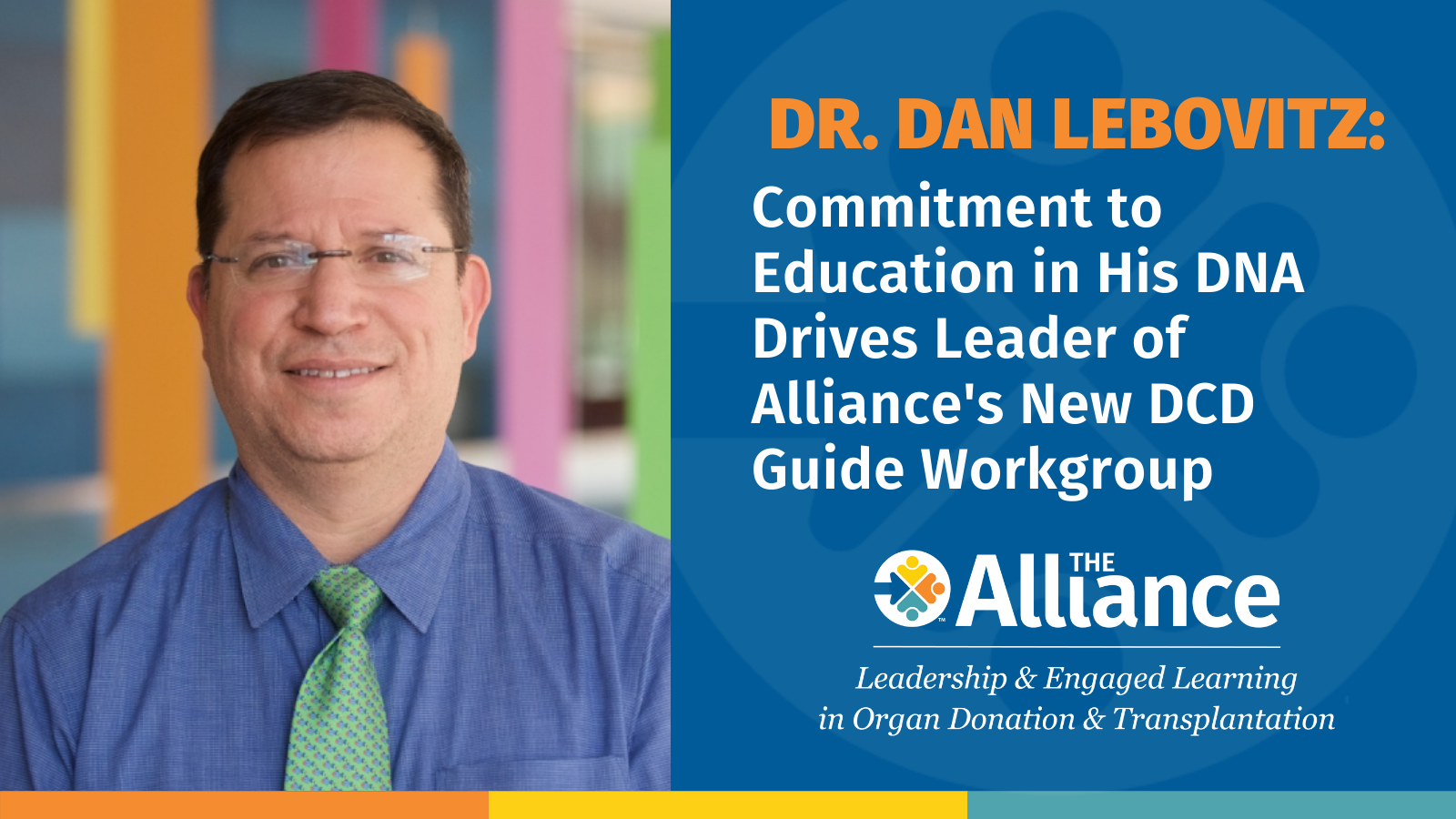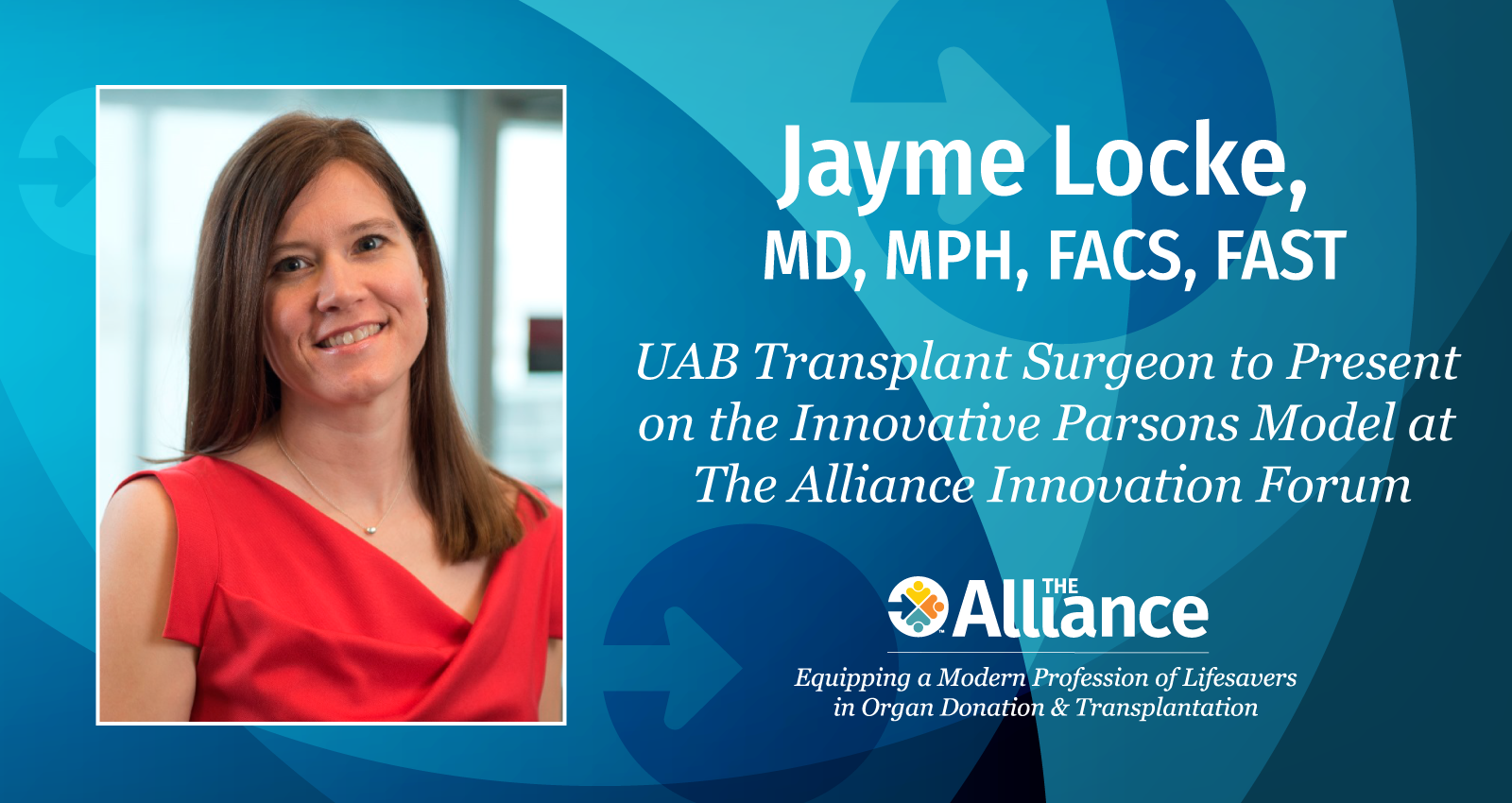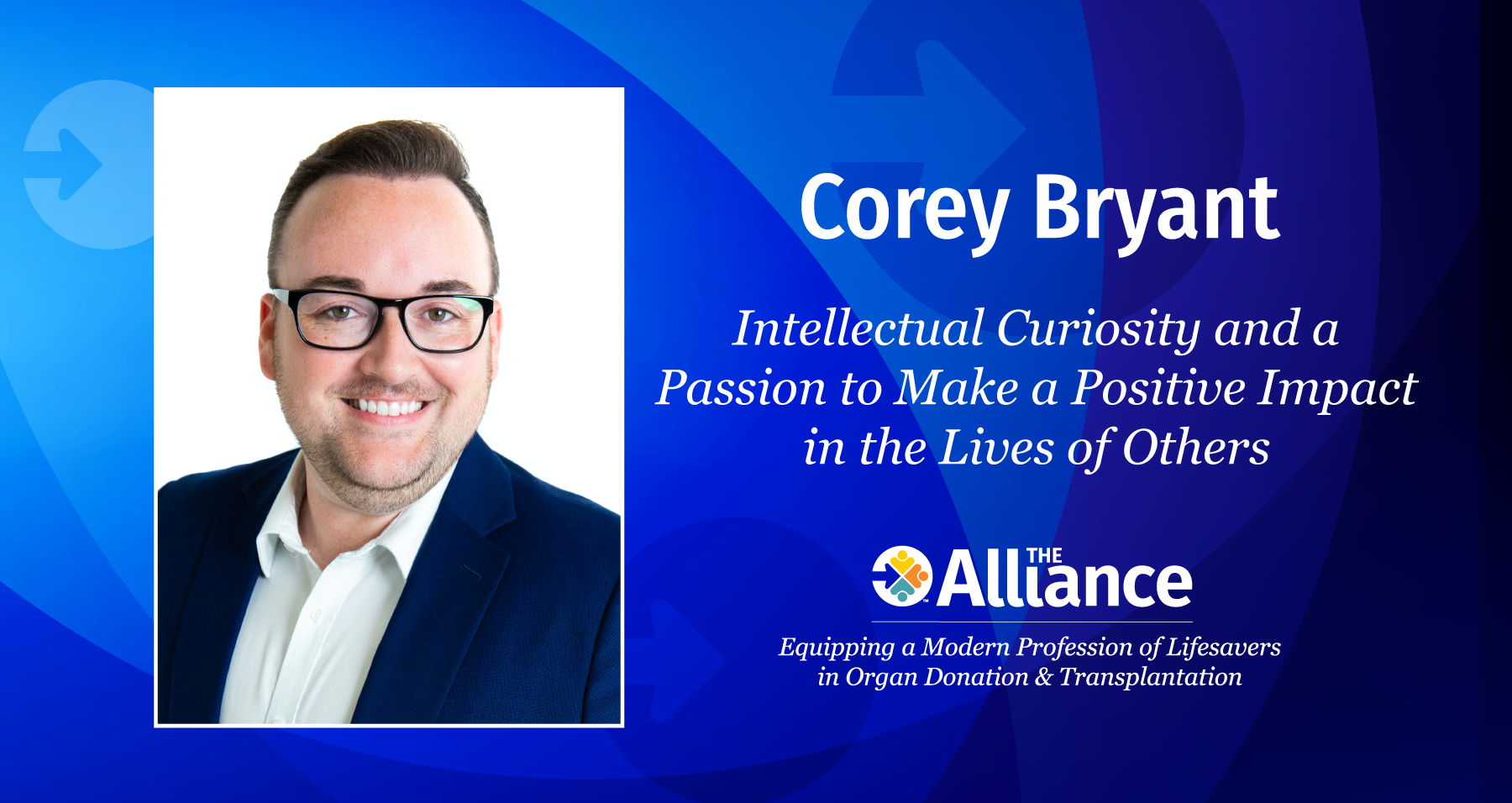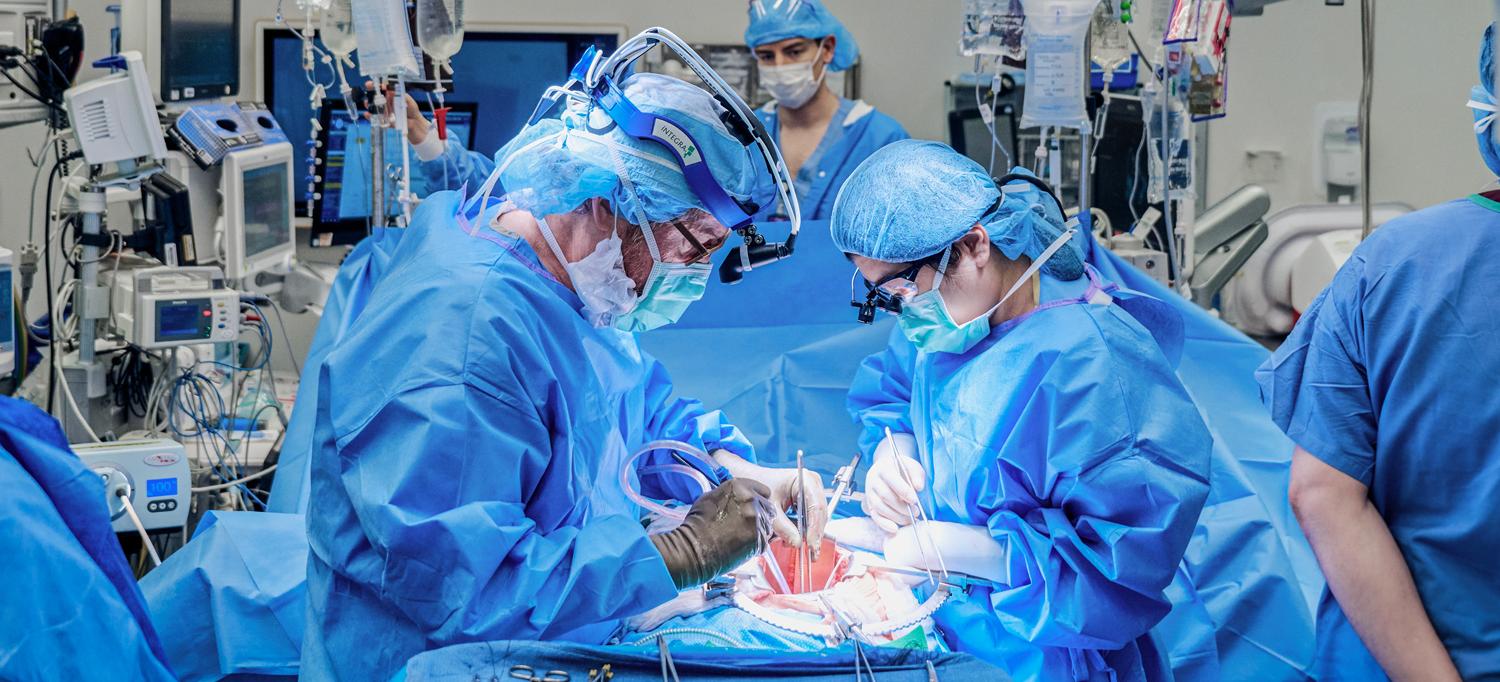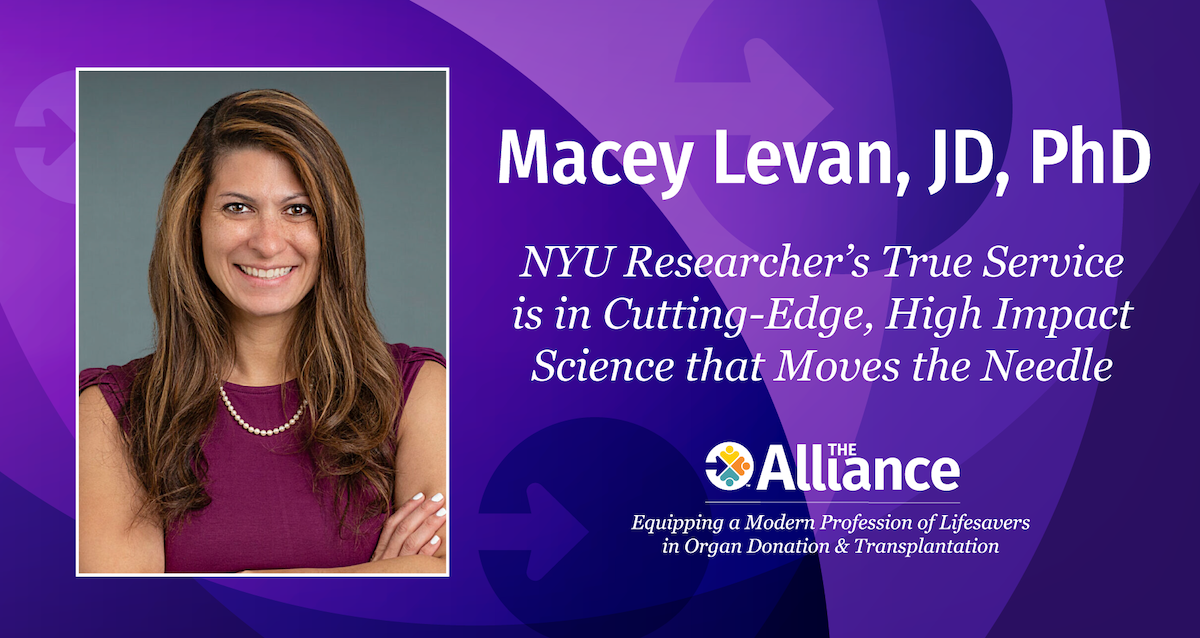Dan Lebovitz’s passion for medical education is embedded in his DNA and finds its expression in his work with patients and families in the Pediatric ICU. This also extends into his work in the world of organ and tissue donation, including his recent work with The Alliance to create a Donation after Circulatory Death (DCD) educational guide for medical professionals. “I feel a strong commitment to providing the best care I can for critically ill children and their families and to teach others to do the same,” says Lebovitz. “This requires continuing to learn myself, and share knowledge with others.”
The son of Dr. Harold Lebovitz, a widely published endocrinologist and educator, Daniel is leading The Alliance DCD Educational Guide Workgroup. The group is currently developing a guide that will provide a comprehensive overview of DCD. “It’s a guide designed for patient care teams in hospitals to be aware of the current general approaches to the potential donor who is not pronounced neurologically deceased, but is unable to survive, in which the patient or the family has made the decision to withdraw life-sustaining treatments,” says Lebovitz.
The guide will provide information on a range of topics. “From caring for the patient in the ICU, to talking to the patient’s family about the potential for donation, to obtaining consent, to identifying what organs may be transplantable, knowing what labs to evaluate and evaluating the organs, talking to transplant centers, talking with the OR staff to prepare expectations, to OR occurrences as well as plans if the donation is unable to move forward—we’re covering it all,” says Lebovitz.
“I think the neurologically deceased organ donor is one of the most physiologically challenging patients to care for because they just don’t follow the normal rules we have learned,” says Lebovitz. “As students, we are never taught how to take care of neurologically deceased organ donors. There’s no medical school course called ‘Management of the Neurologically Deceased Organ Donor in the ICU Setting.’”
Filling that knowledge gap appeals to Lebovitz. “What I like about The Alliance is the ongoing commitment to developing tools to help educate people in how to best give the opportunity for organ donation to occur, if an individual or their family has chosen at the time of their death to gift life to others and be an organ donor.”
Lebovitz grew up in Durham, NC, where his father was the director of the division of endocrinology at Duke University and his mother was a diabetes teaching nurse. As a child, he wanted to be a large animal vet, but after volunteering with his mother at a camp for children with diabetes as a camp counselor, he became more interested in taking care of children. “I was always interested in very hands-on work. I like to think on my feet and react quickly to situations,” says Lebovitz. “So critical care was a natural sort of entry point for me after training in general pediatrics.”
After attending Washington University in St. Louis, he returned home to Duke University for Medical School and then did his residency in general pediatrics at Rainbow Babies and Children’s Hospital in Cleveland Ohio. He did a fellowship in pediatric critical care at Dallas Children’s Hospital, the University of Virginia in Charlottesville and then returned to Rainbow Babies and Children’s Hospital where he continued as junior faculty. He then moved to the University of Oklahoma, where he cared for several children injured in the Oklahoma City bombing in 1995.
“The Oklahoma Organ Sharing Network [now Lifeshare of Oklahoma] was looking for a new medical director. I worked with them on a number of sad occasions to advocate for donation and to allow for the most successful organ donation possible for patients we had cared for in the PICU,” says Lebovitz. “They wanted somebody to teach them more about the critical care medicine in managing neurologically deceased donors. So that’s how I got involved and soon became their medical director.”
Lebovitz ties his interest in organ donation to his commitment to patients and their families.
“I think that my responsibility as a caregiver for pediatric patients to provide families as much information as I can about care choices at different points in the medical care of their critically ill child. And unfortunately, at some point, the only decision making they have left is the decision of whether they want their child to be an organ donor.”
“But I think that the end result is that when families do make the decision to gift their child’s organs to try to help save either an adult or a child, because many organs donated by children actually are transplanted into adults and save their lives as well, I do think it provides families with some ability to make some sense out of a tragic event.”
In 2000, he was recruited back to the pediatric ICU at Rainbow Babies and Children’s and soon became the medical director of Lifebanc, the OPO in Cleveland, Ohio. He continues to serve as the medical director there, now 21 years later as well as consulting with other OPOs.
Lebovitz has volunteered with a number of national organizations. He has served as the medical advisor for AOPO, was a founding member of the Organ Donation Research Consortium, served on numerous committees with UNOS. He is quick to credit his wife, Lisa, with making possible everything he does. “It would be impossible to do all of this without a partner who really understands and supports all of the craziness I do,” he says.
Lebovitz is a self-professed foodie. He and Lisa love to cook together. “We collect wine, and we find wine to pair with the food that we make,” he says. “We have our own vegetable garden and flower gardens. Lisa is an excellent gardener. I build raised boxes and we plant things together. Lisa does most of the work! We’re also very outdoorsy people. We like to hike, bike and run. We enjoy backpacking – currently mostly on the Appalachian trail. And in the winter, we head for the sun and scuba dive.”
Lebovitz’s passion for education boils down to one thing: “I think there are ways to be really good at organ donor management and to do a really good job at allowing someone, if they want to be an organ donor and gift life to others, to be the best possible organ donor they can be,” he says. “That means they can donate the most organs to save the most lives. If that’s the decision that they make, then as a physician my responsibility is to do whatever I can to make this happen. And that’s why I put so much emphasis on education focusing in this unique but extremely important area of medicine.”




